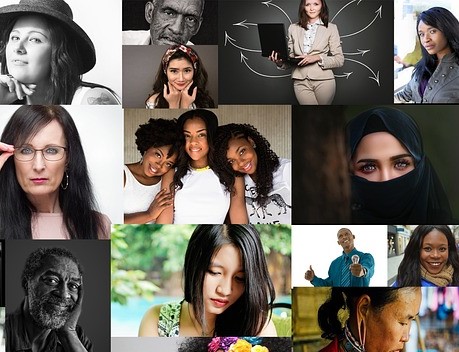By David Duffy, below, Co-Founder & CEO, Corporate Governance Institute
 Diversity has been a buzzword for organisations and businesses in recent years, and for a good reason. Not only is it essential for companies to reflect the societies in which they operate, but research has also shown that diverse teams are more creative, innovative, and ultimately more successful. In 2023, the conversation around diversity has evolved to encompass new dimensions, including recognising neurodivergence, diversity of age, and economic diversity as key barometers. Whilst there are plenty of examples of how diversity has changed in recent years, these are three key ways I’ve seen it shift.
Diversity has been a buzzword for organisations and businesses in recent years, and for a good reason. Not only is it essential for companies to reflect the societies in which they operate, but research has also shown that diverse teams are more creative, innovative, and ultimately more successful. In 2023, the conversation around diversity has evolved to encompass new dimensions, including recognising neurodivergence, diversity of age, and economic diversity as key barometers. Whilst there are plenty of examples of how diversity has changed in recent years, these are three key ways I’ve seen it shift.
Neurodivergence
Neurodivergence is a term used to describe individuals who have brains that function differently from what is considered “normal.” This includes conditions such as autism, ADHD, and dyslexia, amongst many others. In the past, neurodivergent individuals were often excluded from mainstream education and employment opportunities. However, in 2023, there has been a significant shift in how society views and includes neurodivergent people.
Organisations across various industries are beginning to recognise that “divergence” is an opportunity, not a barrier, and that everyone has skill sets and ways of working that contribute to business goals. By creating inclusive workplaces that accommodate the needs of neurodivergent people, companies can tap into this diverse pool of talent and boost their overall performance.
It’s clear that diversity isn’t just about inclusion either – JP Morgan & Chase’s Autism at Work program found autistic employees “48% faster and up to 92% more productive than their non-autistic counterparts – with common factors including strong visual acuity, attention to detail, and a superior ability to focus”.
In addition to being beneficial for companies, the shift towards neurodiversity is also an important step towards greater social inclusion. It sends a message to neurodivergent individuals that their unique perspectives and abilities are valued equally.
Age diversity
While diversity of age has always been a consideration in the workplace, it has become even more critical in 2023 as the global population continues to age. In addition, the concept of retirement is also changing, with more individuals opting to work well into their 60s, 70s, and even 80s. As a result, coupled with other external factors like the cost of living crisis, workplaces are becoming more age-diverse, with employees ranging from recent college graduates to those nearing retirement.
Age diversity is a tremendous advantage for organisations. For example, older workers may have a wealth of experience and institutional knowledge that can be invaluable in decision-making and problem-solving. Meanwhile, younger workers may be more tech-savvy and able to bring fresh perspectives to the table.
Organisations can harness the benefits of age diversity while minimising its potential pitfalls by creating a workplace culture that values and respects the perspectives of individuals of all ages.
Economic diversity
Diversity of economic background is another important consideration in 2023. As the gap between the rich and the poor continues to widen, organisations increasingly need to ensure that individuals from all socioeconomic backgrounds have an equal opportunity to succeed. This means creating recruitment and hiring processes that are fair and inclusive, as well as providing opportunities for career advancement and upskilling.
In addition to the social benefits of promoting economic diversity, there are also business benefits. For example, individuals from lower socioeconomic backgrounds may have a unique understanding of the needs and challenges of underserved communities, which can be invaluable for companies looking to expand into new markets. Meanwhile, individuals from higher socioeconomic backgrounds may bring different skills and perspectives that can help to drive innovation and growth.
A new era of diversity
Diversity has undergone significant changes in 2023, with a greater emphasis on inclusivity, representation, and acceptance of individuals from a broader range of backgrounds. By embracing neurodiversity, age diversity, and diversity of economic background, organisations are able to access a wider pool of talent, experiences, and perspectives, ultimately leading to better business outcomes.
In this new era of diversity, the focus has shifted towards creating inclusive cultures that value and respect each individual’s unique qualities and contributions. As we move forward, it is vital for organisations and society as a whole to continue to promote and celebrate diversity in all its forms to create a more equitable and prosperous world.


